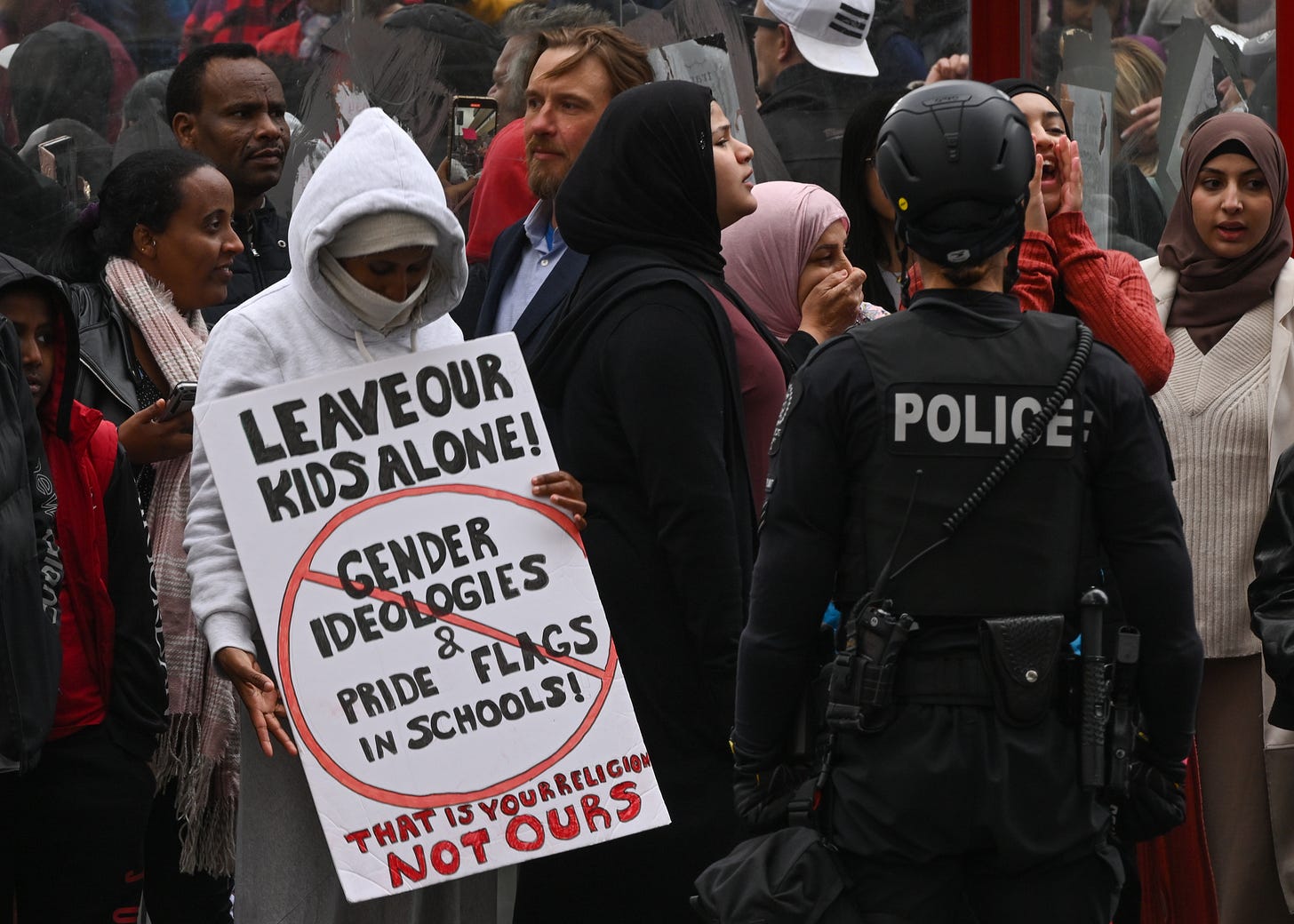When a Cultural Revolution Reverses
Check out the new eyebrow-raising Gallup poll on same-sex marriage

Since the 1960s, the United States (along with much of the rest of the world) has undergone successive waves of cultural revolution. Black Americans demanded and finally received support from the federal government in fighting individual and structural racism. Women demanded and largely received rights to equal pay, protections against sex-based discrimination and harassment, and reproductive freedom. Homosexuals demanded similar protections and then sought the right to marry, which they were granted by the Supreme Court in the Obergefell decision of 2015. Most recently, transgender activists have demanded legal protections as well as a series of changes in how the rest of society thinks and speaks about sex and gender.
Until a few years ago, all these developments appeared to move in one direction. As each group made claims about injustice, discrimination, oppression, and the need for legal, moral, and cultural changes to right these wrongs, reforms were made. Yes, some opposed each reform, but in each case the opposition eventually lost, as society as a whole appeared to move leftward, conceding the validity of the objections first made by activists and advocates for each group.
None of these shifts was more rapid and dramatic than the moral acceptance of homosexuality and legal support for same-sex marriage. As recently as 2002, just 38 percent of Americans considered “homosexual behavior” morally acceptable. A mere twenty years later, 71 percent of the country had come around to that view. Likewise, just 27 percent of Americans supported same-sex marriage in 1996. By 2022, it, too, enjoyed the backing of 71 percent.
In light of those dramatic changes, a new Gallup poll released on Monday contains some eyebrow-raising numbers.
Republicans Turning Away from Gay Rights
The Dobbs decision two years ago showed that the Supreme Court could reverse course and take away a right it had previously declared. But that major shift on abortion rights has done little to change public opinion on the issue, beyond making Republicans somewhat less likely to support a total abortion ban.
When it comes to gay rights, by contrast, the Supreme Court has said little since Obergefell. And yet something is happening to public opinion—especially among Republicans. In the new poll, overall support for same-sex marriage remains high, down just 2 points from its 2022 high of 71 percent. But among Republicans, support dropped 6 points from 2022 to 2023, and it’s fallen an additional 3 points over the past year, confirming that the initial drop wasn’t just a statistical fluke.
Keep reading with a 7-day free trial
Subscribe to Notes from the Middleground to keep reading this post and get 7 days of free access to the full post archives.




